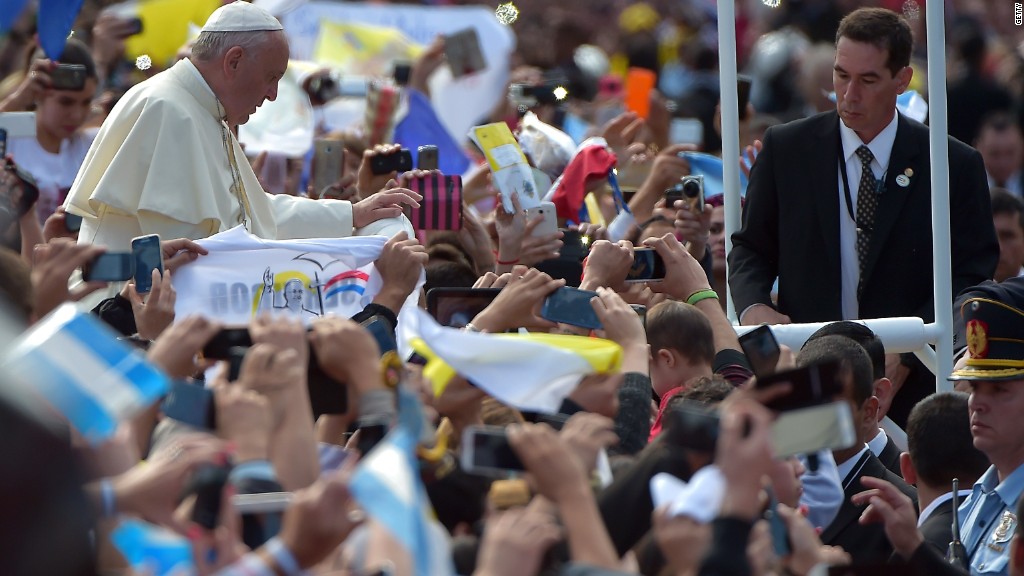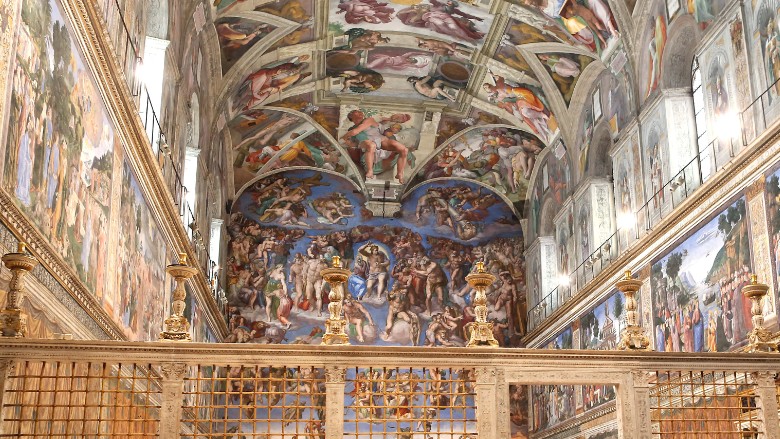
The Catholic Church is the spiritual home to 1.1 billion people around the world. It's also a big business that handles billions of dollars.
Here's how it makes money and how it spends it.
1. The Vatican Bank has $8 billion in assets
The Vatican Bank, which has about $8 billion in assets, has often been at the center of scandal and corruption since it was founded in 1942. Pope Benedict began the process of cleaning the bank up, and Francis has continued that work.
Vatican Bank accounts are only supposed to be held by residents of Vatican City and church personnel. But according to Gerald Posner, a Vatican bank scholar and the author of "God's Bankers," these accounts were often awarded to powerful Italian officials looking to stash money without paying taxes.
The bank closed over 4,000 accounts to weed out corruption and currently has a total of 33,400 accounts.
The bank, formally known as the Institute of Works of Religion, has made progress, but still has a long way to go in becoming more transparent.
2. The Vatican had over €1.1 billion off its balance sheet
The Vatican is a separate entity from the Vatican bank, and underwent its own clean up last year.
When it released its 2014 financial statements in July, the Vatican said it had more than €1.1 billion ($1.2 billion) in assets that weren't previously on the balance sheet.
The Vatican has two main entities. The Holy See, which governs the Catholic Church and the Vatican City State, which governs Vatican City.
The Holy See reported a deficit of €25.6 million ($27.9 million) in 2014, even though it received over €50 million from the Vatican Bank. Its biggest expense last year was paying its 2,880 employees a total of €126.6 million.
The Vatican City State is responsible for running the Vatican Museums and in 2014 had a surplus of €63.5 million -- nearly double what it was the year before.
3. The Sistine Chapel is for rent - kind of
In October 2014, the Sistine Chapel was rented out for the first time to the automaker Porsche.
Forty Porsche fans paid $5,900 to attend a gala under Michelangelo's famed painted ceiling as part of Pope Francis' Art for Charity project.
Whereas the average visitor is permitted only a short stay in the chapel, for fear of damage to the frescoes, the Porsche guests were treated to a private choral concert and a dinner in the exhibit.
Although money did change hands, the Vatican still contends it isn't renting out the chapel.
"The Sistine Chapel can never be rented because it is not a commercial place," Vatican spokesman Monsignor Paolo Nicolini said.
Instead, he described it as being "visible" for private groups.
But don't try booking the chapel for your birthday or wedding anytime soon -- events are limited to art-related functions.

4. It costs how much to become a saint?!
It's not cheap to get a priest canonized. To wit: The Our Lady of Victory National Shrine & Basilica in Lackawanna, New York, has raised over $250,000 in an effort to canonize its former priest, Father Nelson Baker.
The funds cover the publication of materials about Baker, prayer cards, communication between the church and the Vatican, travel costs for visits to and from Rome and the fees of a canon lawyer.
The cost of canonization can vary greatly depending on the length of the process and the specific evidence needed to prove that a candidate is qualified for sainthood.
The church first appealed to Rome to have Baker canonized in 1987. The case was approved in 2011, but Our Lady of Victory still has to prove that Baker performed miracles.
5. Tourism in Vatican City has tripled under Pope Francis
Tourism under Pope Francis has nearly tripled since he replaced Pope Benedict in March of 2013.
Over 12 million visitors have flocked to the Vatican for events featuring Pope Francis. And those figures don't even include the attendance for Pope Francis events that were held outside of the Vatican -- that tacks on another nearly 13 million visitors.
Pope Benedict received some 20.5 million visitors during his tenure from 2005-2013.
